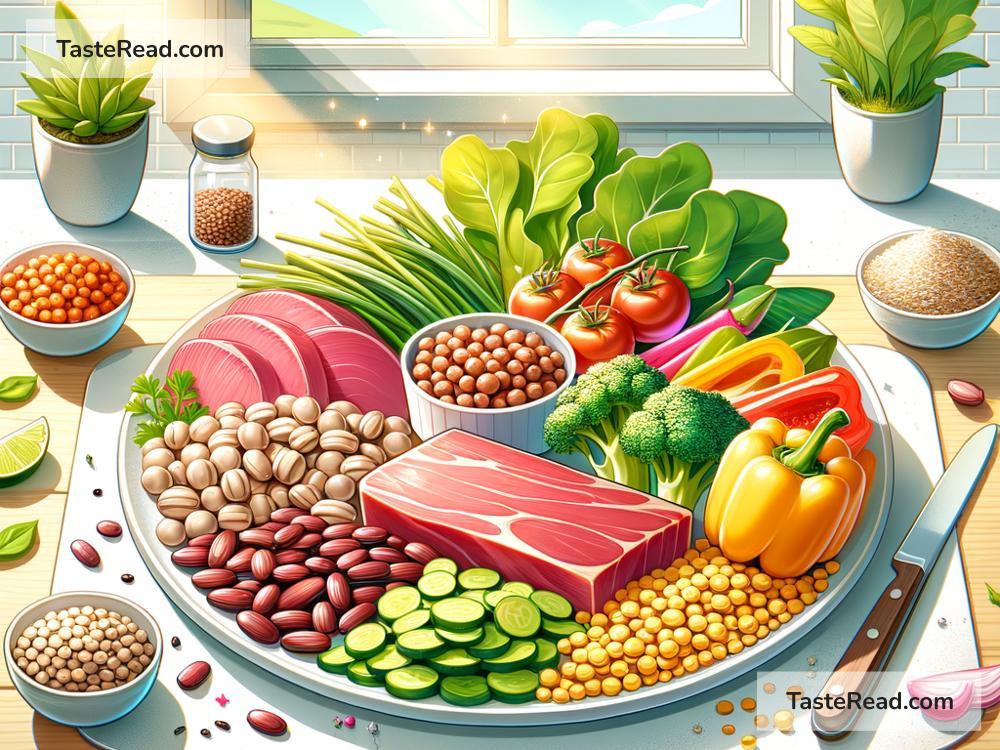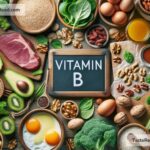The Role of “Vitamin B53” in Metabolic Health: Fact or Fiction?
In recent years, people have started paying more attention to their health, especially when it comes to vitamins and nutrients. Vitamins play an important role in keeping our bodies running properly, including supporting our energy levels, immune system, and overall well-being. However, amidst all this talk about health, a mysterious name has been circulating: Vitamin B53. You might be asking yourself, “What is Vitamin B53, and how does it help with metabolic health?”
Before diving into the details, let’s clarify one important point: Vitamin B53 does not actually exist. It’s a fictional idea or a made-up term that sometimes appears in misinformation or even jokes in the scientific community. Instead of Vitamin B53, people should focus on real vitamins that are already proven to play important roles in human health. Still, this imaginary term provides an opportunity to explore real B vitamins and the science behind food energy and metabolism.
So, let’s talk about real B vitamins – like B1, B6, B12, and others – and their importance in metabolic health. We’ll also discuss how they help our bodies turn food into energy.
What Are B Vitamins?
The B vitamins are a group of nutrients that are vital for the body’s functions. They work together to help create energy, keep your brain functioning properly, and maintain healthy cells. The most common B vitamins are:
- Vitamin B1 (Thiamine)
- Vitamin B2 (Riboflavin)
- Vitamin B3 (Niacin)
- Vitamin B5 (Pantothenic Acid)
- Vitamin B6 (Pyridoxine)
- Vitamin B7 (Biotin)
- Vitamin B9 (Folate)
- Vitamin B12 (Cobalamin)
Each of these vitamins has its own specific job in the body, but they all work together to support the process of metabolism. Metabolism is the way your body breaks down food and turns it into energy—energy that powers everything you do, like walking, thinking, and even breathing.
How B Vitamins Power Metabolism
When you eat food, your body doesn’t use it immediately as energy. Instead, the food goes through a series of chemical processes to “unlock” the nutrients inside. This is where B vitamins come in—they act as helpers in the chemical reactions that convert carbohydrates, fats, and proteins into usable energy. Without enough B vitamins in your diet, your metabolism may not work as efficiently, leading to fatigue or other health issues.
Let’s take a look at some specific examples of how B vitamins support your metabolic health:
-
Vitamin B1 (Thiamine):
This helps convert carbohydrates into energy. It’s especially important for the brain and nervous system, which rely on glucose for fuel. -
Vitamin B6 (Pyridoxine):
B6 plays a big role in breaking down proteins and helping your body store energy. It’s also important for making neurotransmitters, the chemicals that send messages in your brain. -
Vitamin B12 (Cobalamin):
This vitamin helps your body produce red blood cells and ensures your nervous system works properly. It also helps in converting fats and proteins into energy. -
Vitamin B9 (Folate):
Folate is essential for DNA repair and growth, and it also helps produce red and white blood cells.
Why Do People Get Confused About Vitamins?
The idea of Vitamin B53 may have emerged because the B vitamin family can feel confusing. There are eight official B vitamins, but in the past, scientists used to label other compounds as B vitamins—even if later research showed they weren’t necessary for humans. For example, substances like inositol and choline were once considered B vitamins but now are classified differently.
This has led to misunderstanding or even playful misinformation. Some people make up fake names like B53 to draw attention to their products or ideas. It’s important to double-check the information from trusted sources like doctors or dieticians rather than falling for myths or marketing tricks.
How to Get Enough B Vitamins for Good Metabolic Health
Thankfully, getting enough B vitamins is relatively easy if you eat a healthy, balanced diet. Because these vitamins are found in many different foods, you don’t need fancy, expensive supplements to get them. Some foods rich in B vitamins include:
- Whole grains (like oats and brown rice)
- Leafy green vegetables (like spinach and kale)
- Eggs
- Lean meats (like chicken and beef)
- Fish (like salmon and tuna)
- Dairy products
- Beans and lentils
If you’re vegan or vegetarian, keeping an eye on Vitamin B12 is especially important, because it is mostly found in animal products. Plant-based eaters can get B12 through fortified foods or supplements.
Final Thoughts on “Vitamin B53”
While Vitamin B53 may not exist, its mention reminds us to think critically about health claims and focus on the vitamins that actually do matter. The real B vitamins play a critical role in maintaining metabolic health, converting food into energy, and ensuring your body functions at its best. If you want to feel energized and healthy, prioritize eating nutrient-rich foods that include these all-important B vitamins.
Remember, there’s a lot of information out there about health and wellness. Always double-check your knowledge and consult reliable sources before buying into new health trends. As for “Vitamin B53”? Let’s call it a myth and move forward with facts!
By learning about actual nutrients and how they work in your body, you’ll be better equipped to make choices that support not just your metabolism, but your overall health.


